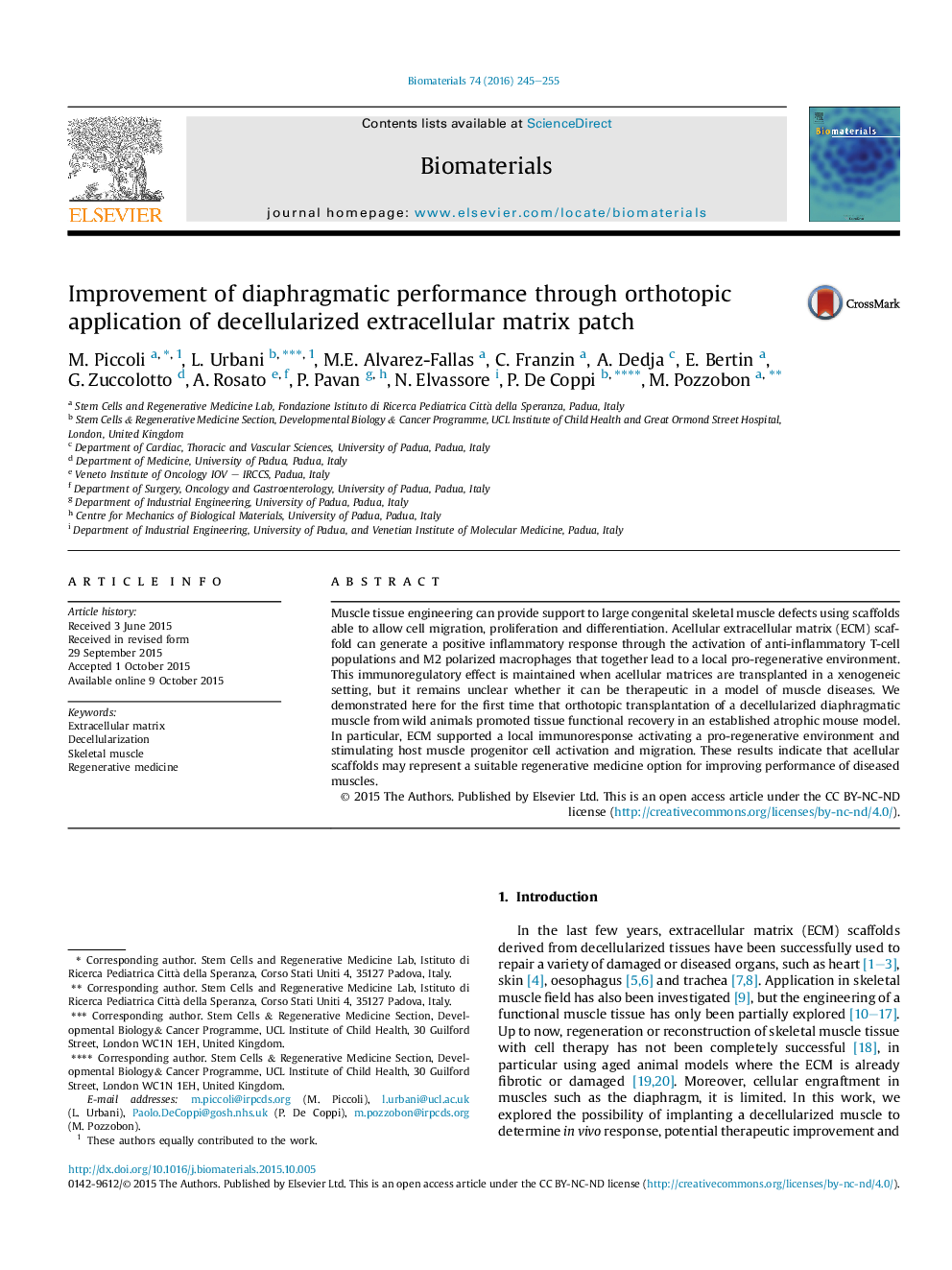| Article ID | Journal | Published Year | Pages | File Type |
|---|---|---|---|---|
| 6485365 | Biomaterials | 2016 | 11 Pages |
Abstract
Muscle tissue engineering can provide support to large congenital skeletal muscle defects using scaffolds able to allow cell migration, proliferation and differentiation. Acellular extracellular matrix (ECM) scaffold can generate a positive inflammatory response through the activation of anti-inflammatory T-cell populations and M2 polarized macrophages that together lead to a local pro-regenerative environment. This immunoregulatory effect is maintained when acellular matrices are transplanted in a xenogeneic setting, but it remains unclear whether it can be therapeutic in a model of muscle diseases. We demonstrated here for the first time that orthotopic transplantation of a decellularized diaphragmatic muscle from wild animals promoted tissue functional recovery in an established atrophic mouse model. In particular, ECM supported a local immunoresponse activating a pro-regenerative environment and stimulating host muscle progenitor cell activation and migration. These results indicate that acellular scaffolds may represent a suitable regenerative medicine option for improving performance of diseased muscles.
Related Topics
Physical Sciences and Engineering
Chemical Engineering
Bioengineering
Authors
M. Piccoli, L. Urbani, M.E. Alvarez-Fallas, C. Franzin, A. Dedja, E. Bertin, G. Zuccolotto, A. Rosato, P. Pavan, N. Elvassore, P. De Coppi, M. Pozzobon,
